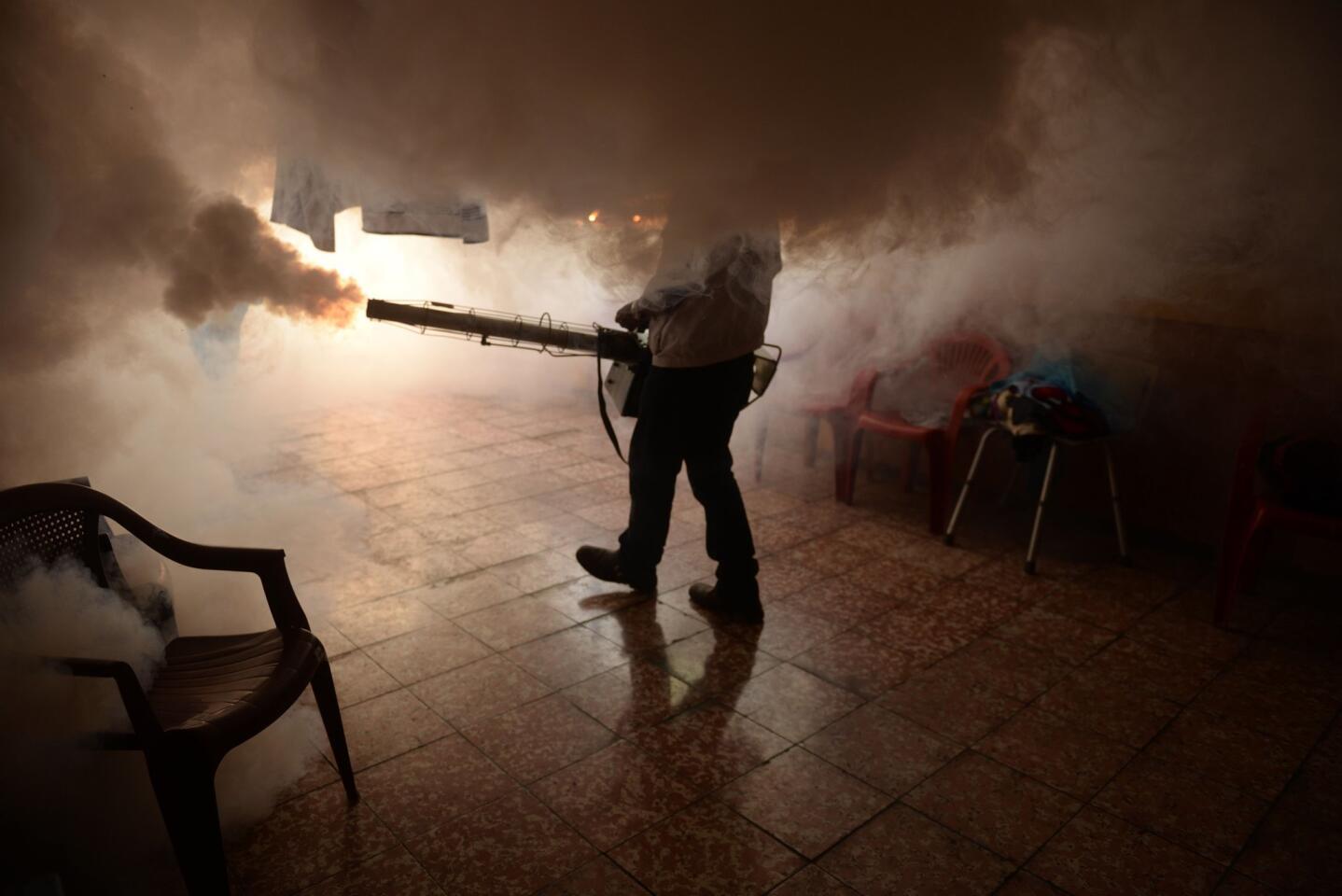The World Health Organization is convening a committee to decide whether the Zika virus outbreak should be declared an international health emergency.
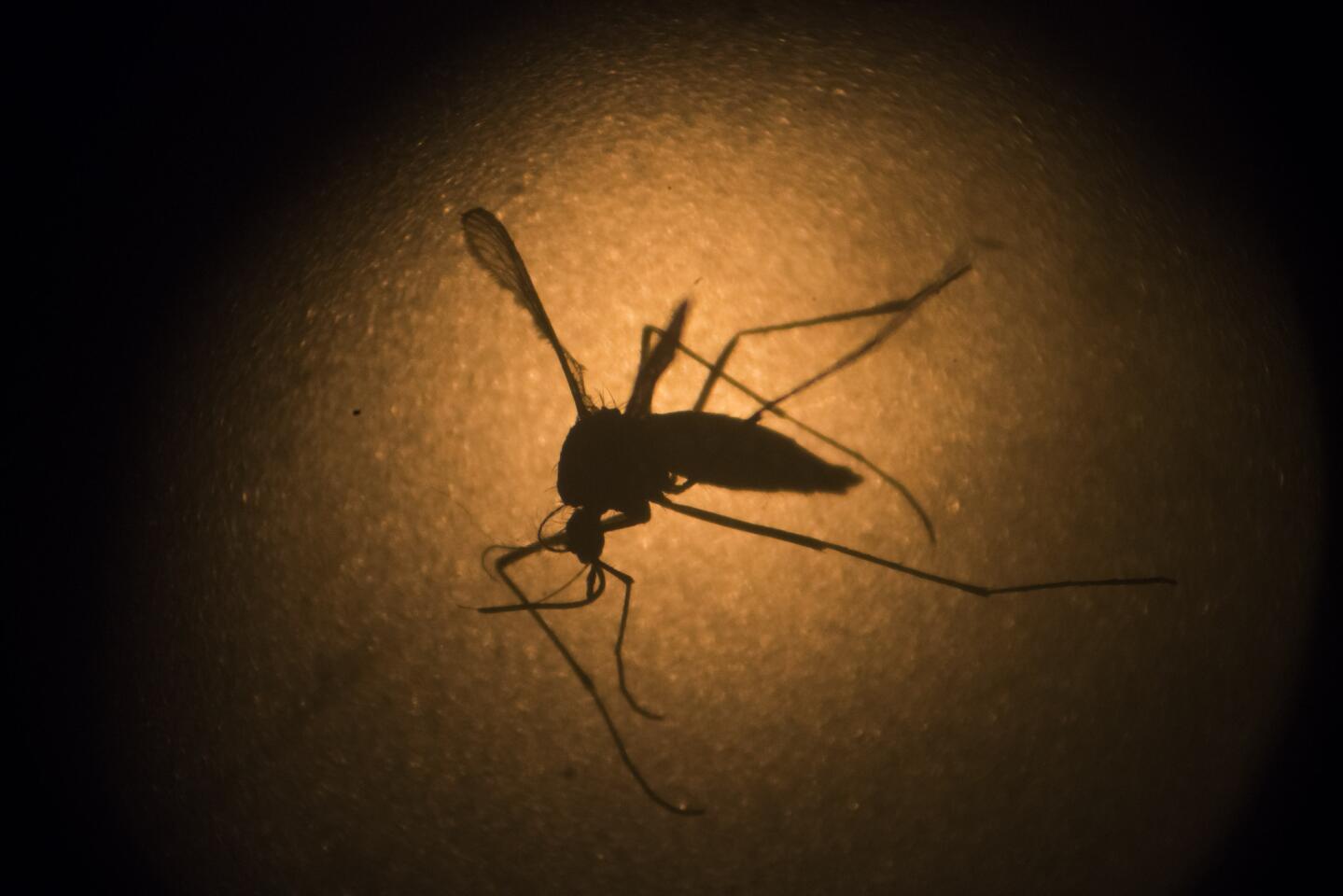
An Aedes aegypti mosquito is photographed through a microscope at the Fiocruz institute in Recife, Brazil.
(Felipe Dana / Associated Press)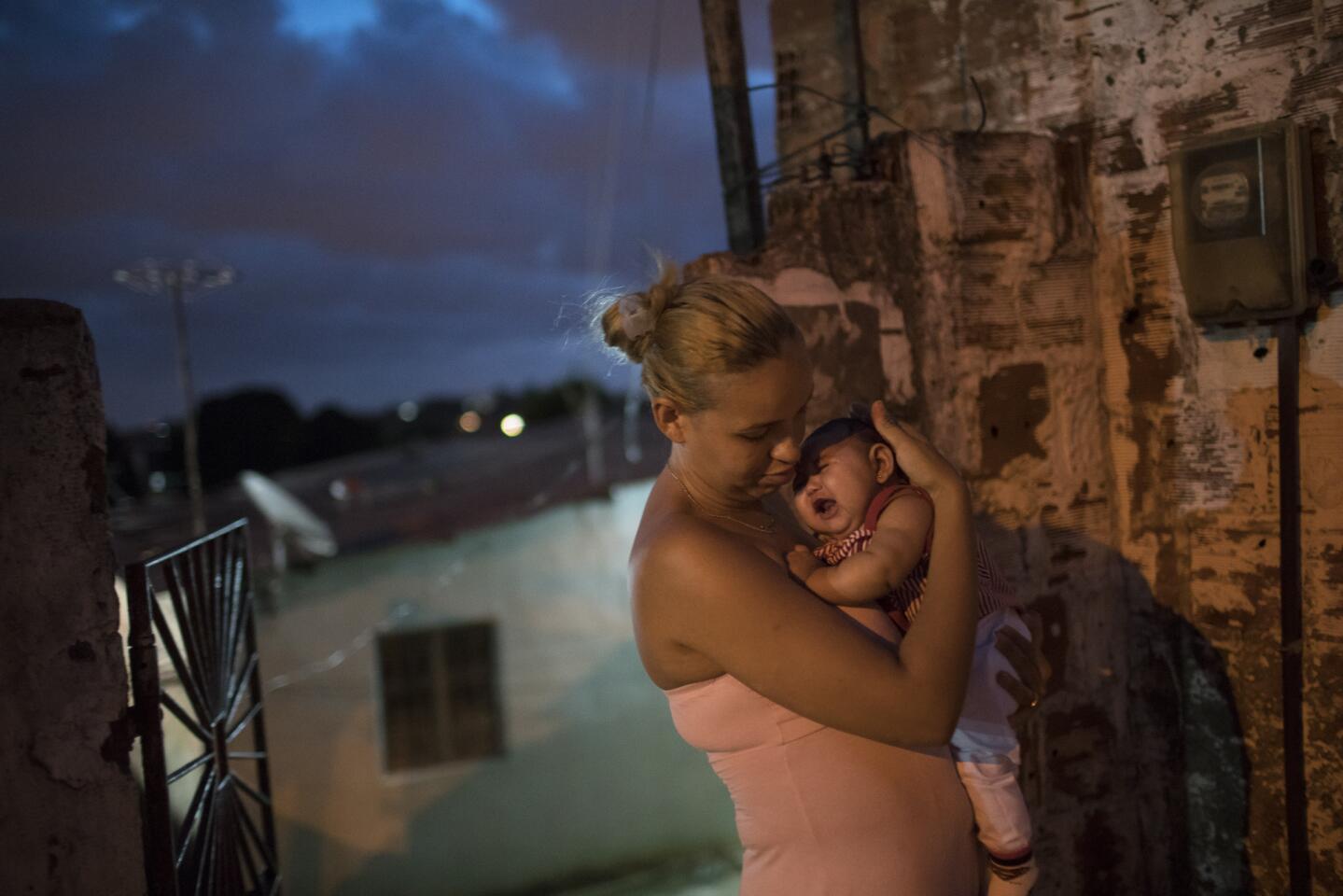
Gleyse Kelly da Silva holds her daughter, Maria Giovanna, who was born with microcephaly, outside their house in Recife, Brazil. Brazilian officials believe there’s a sharp increase in cases of microcephaly and strongly suspect the Zika virus.
(Felipe Dana / Associated Press)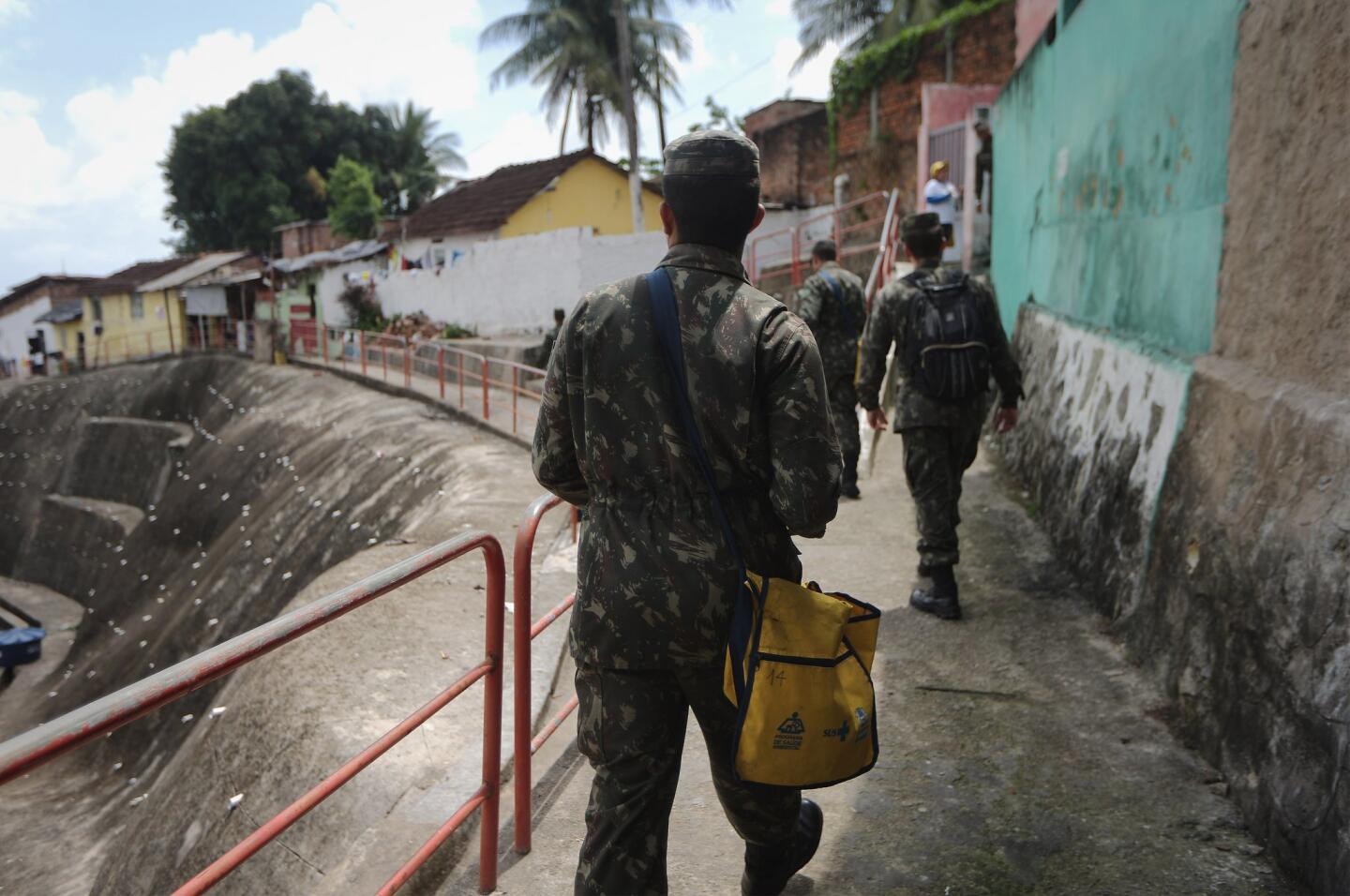
Soldiers canvass a neighborhood in Recife, Brazil, informing the public of preventive methods in an effort to eradicate the mosquitos that transmit the Zika virus.
(Mario Tama / Getty Images)Advertisement

Estafany Perreira holds her nephew David Henrique Ferreira, 5 months, who has microcephaly, in Recife, Brazil. In the last four months, authorities have recorded close to 4,000 cases in Brazil in which the mosquito-borne Zika virus may have led to microcephaly in infants.
(Mario Tama / Getty Images)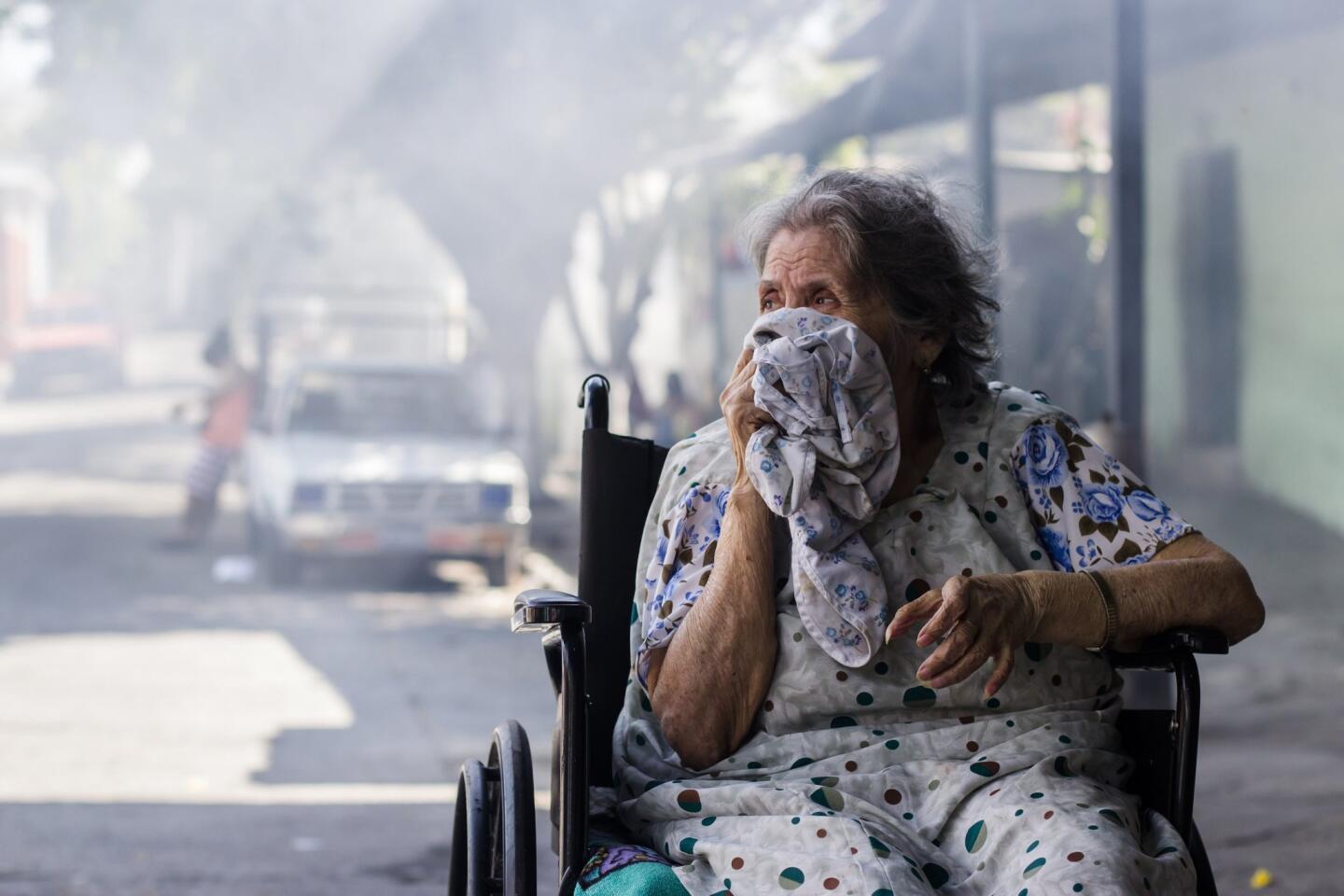
Carmen Chicas Mejia, 82, covers her mouth and nose while city workers fumigate her home in San Salvador to combat the mosquitoes that transmit the Zika virus.
(Salvador Melendez / Associated Press)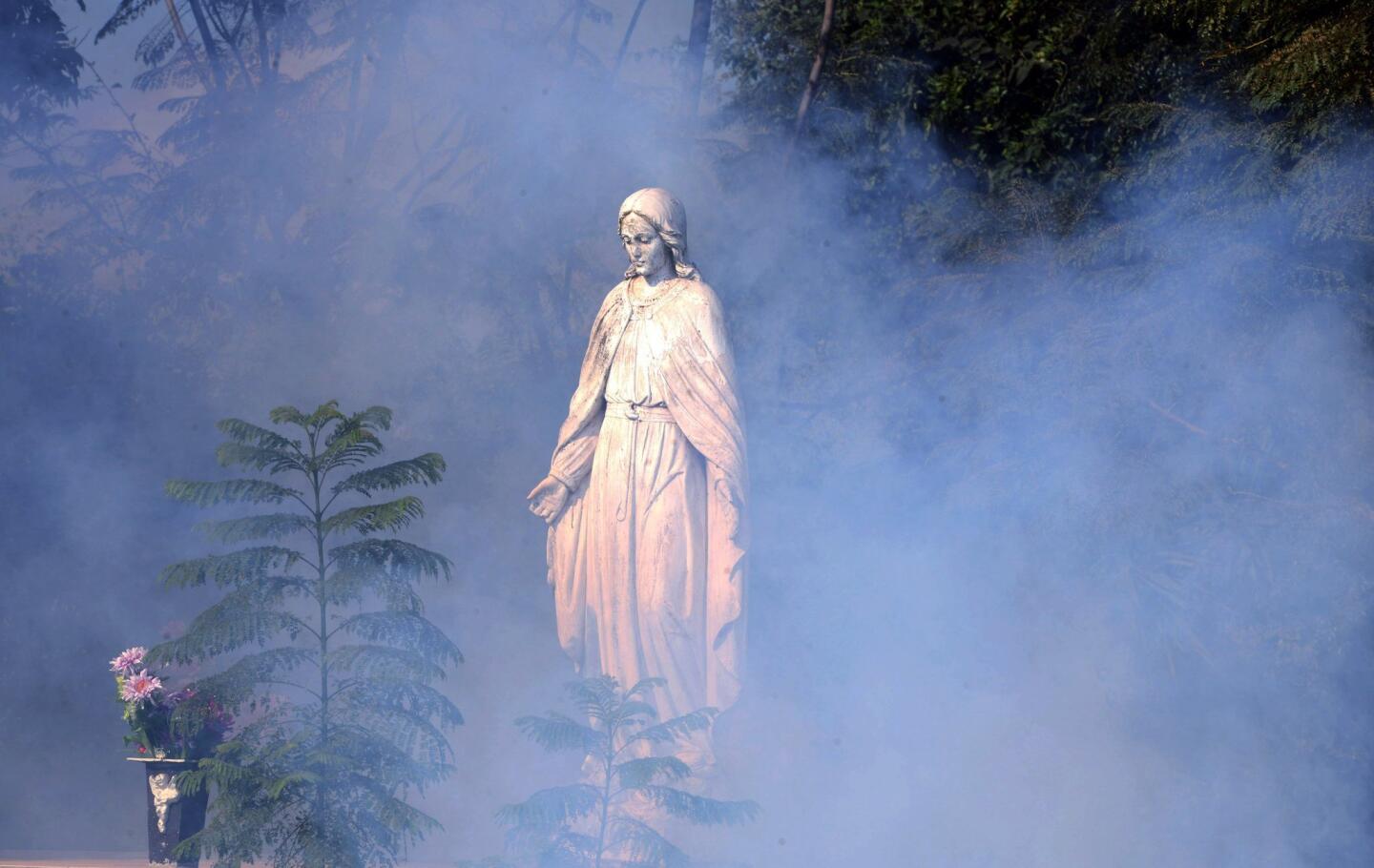
Health ministry employees spray to eliminate breeding sites of the Aedes Aegypti mosquito in a cemetery in Tegucigalpa, Honduras.
(Orlando Sierra / AFP/Getty Images)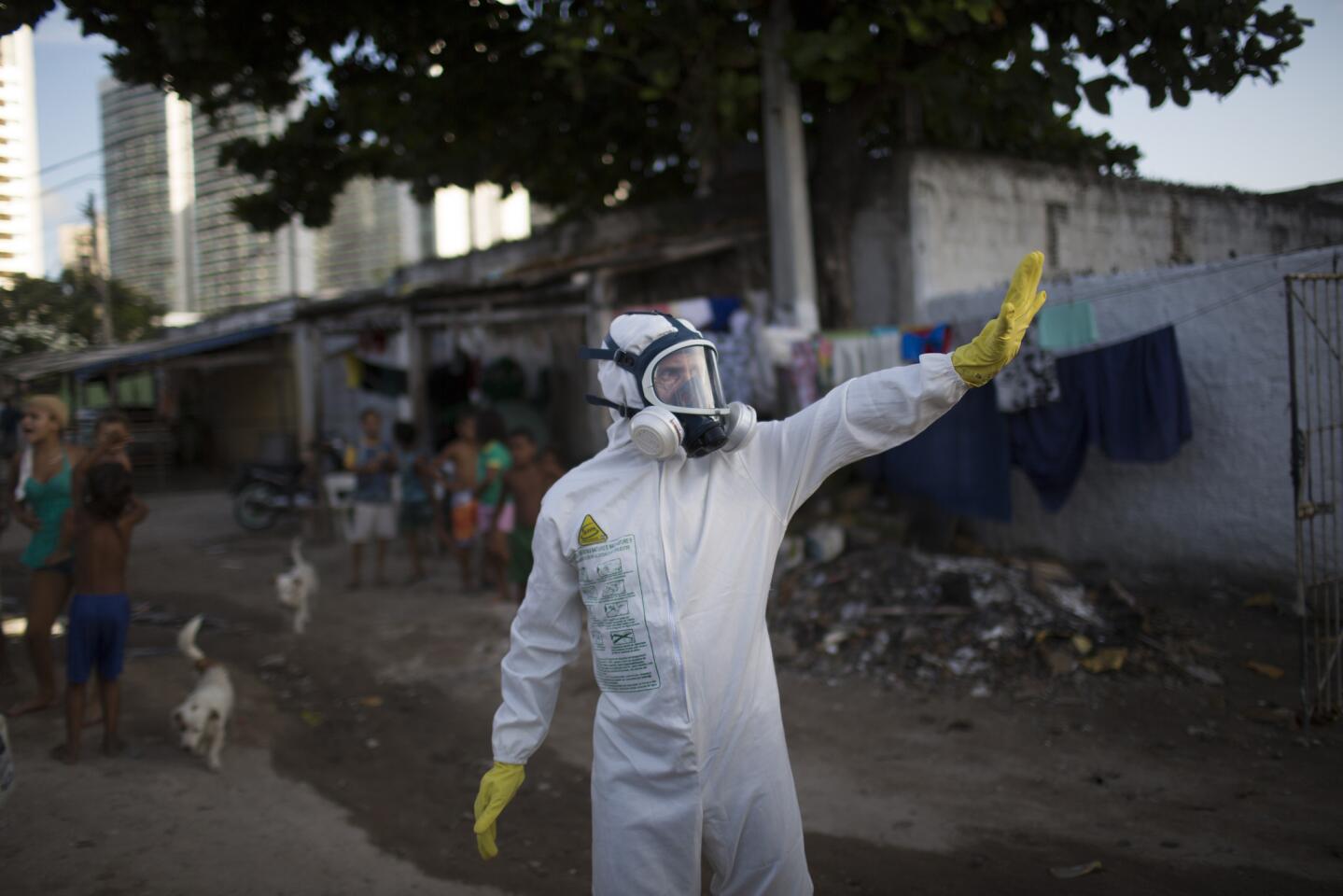
A municipal worker gestures during an operation in Recife, Brazil, to combat mosquitoes that transmit the Zika virus.
(Felipe Dana / Associated Press)Advertisement
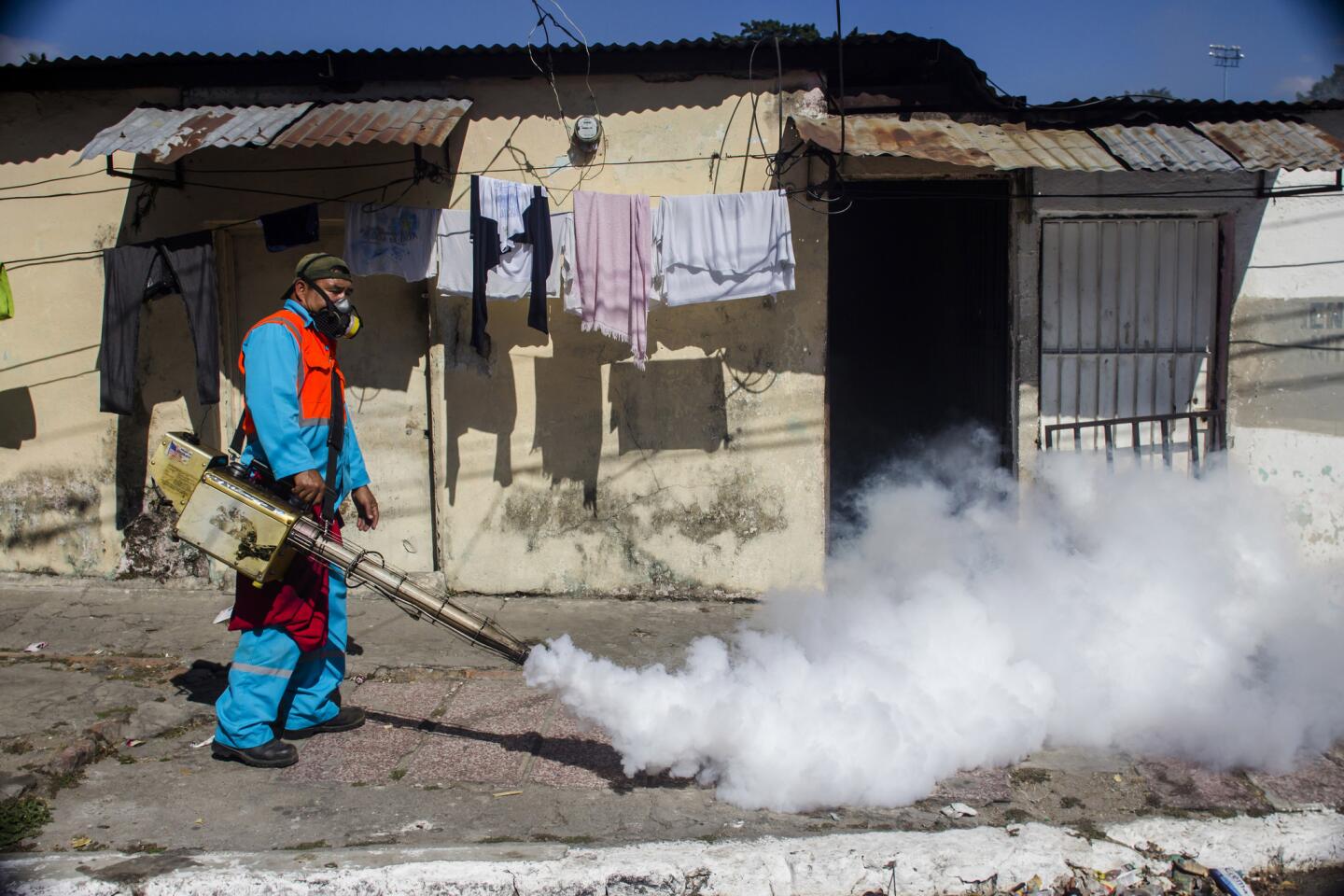
A city worker fumigates to combat the Aedes aegypti mosquitoes that transmit the Zika virus, at the San Judas Community in San Salvador.
(Salvador Melendez / Associated Press)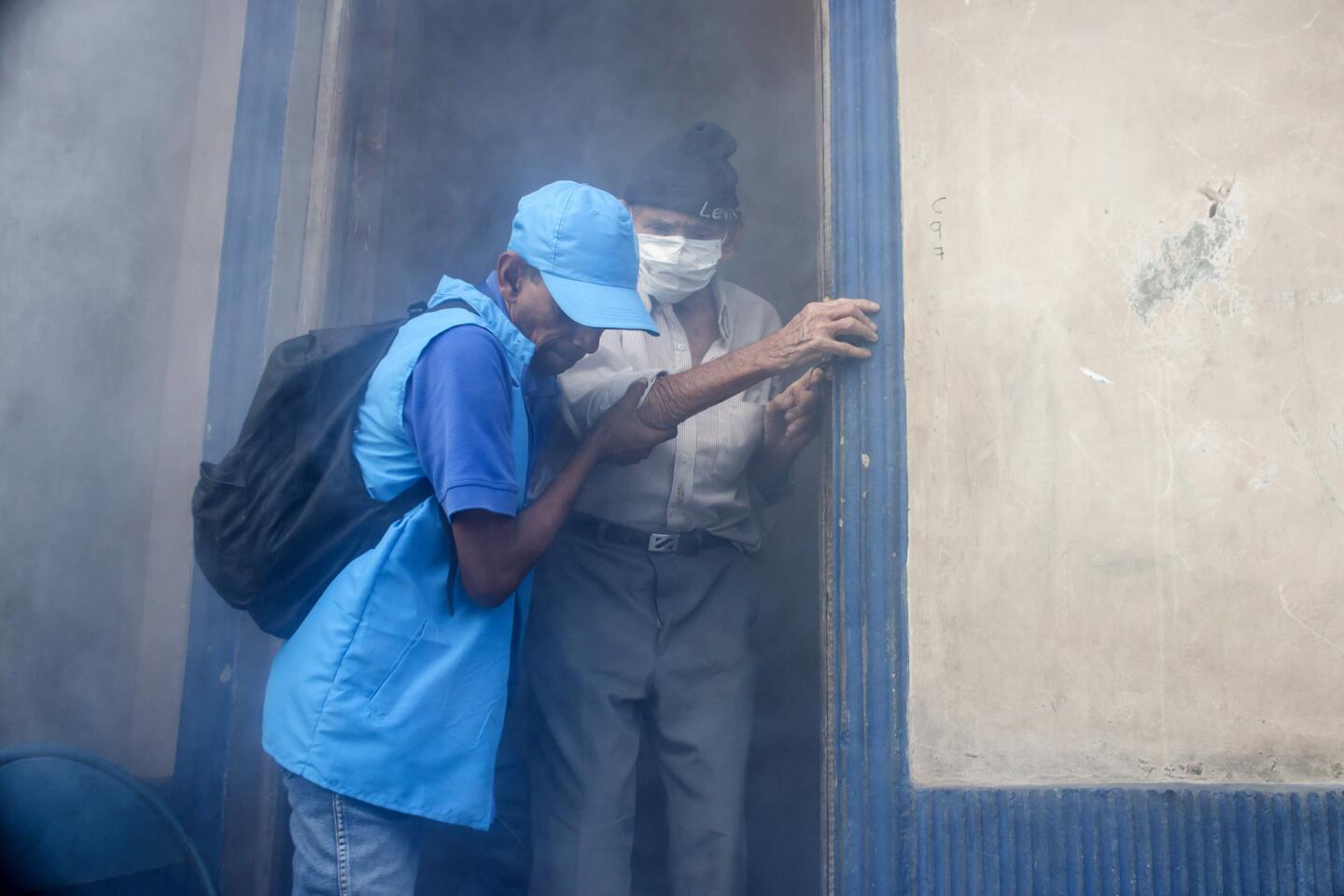
A city worker helps homebound Simon Jose Valentin, 94, leave his San Salvador home while it is fumigated.
(Salvador Melendez / Associated Press)